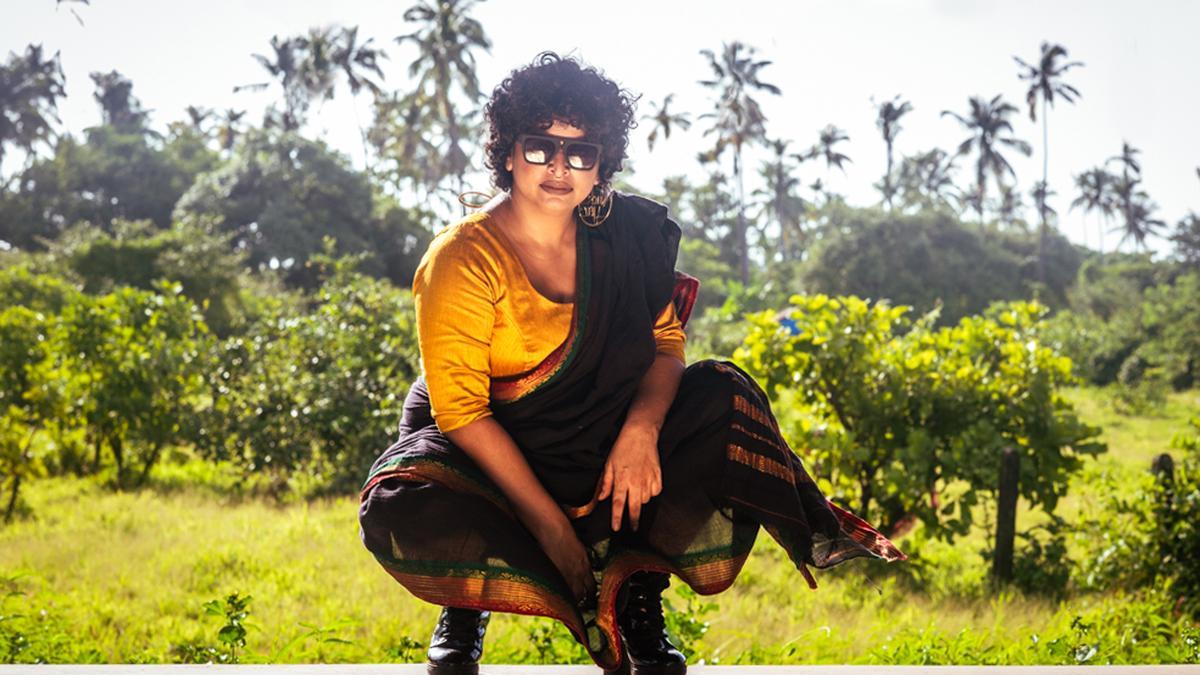
In an industry teeming with tales of valor and revolution, a new chapter is being inscribed with the upcoming film ‘Swatantrya Veer Savarkar’, where celebrated actress Ankita Lokhande is all set to bring to life the story of Yamunabai Savarkar. Lokhande, widely known for her compelling screen presence, recently shared insightful details about her role and the conviction behind her decision to partake in this project.
Lokhande will share screen space with Randeep Hooda, who dons the cap of the indomitable Vinayak Damodar Savarkar, a name synonymous with the Indian freedom struggle. More than just an adornment to the narrative, Lokhande’s character, Yamunabai, emerges as a cornerstone—epitomizing the strength and resilience of the Indian woman. In a heartfelt conversation, Lokhande explained that the very essence of Yamunabai represents the countless unsung heroines who’ve greatly supported their families, yet whose stories remain untold. “The character is such that who represents every Indian woman. A strong character who has supported her husband a lot in everything. Even when she wasn’t physically present there, her husband was in the Kala Pani,” Lokhande elucidated.
As she delves deeper into the character, Lokhande discovers the extents of Yamunabai’s fortitude, especially during the times when her husband faced the grim ordeals of the Kala Pani, a colonial-era prison in the Andaman and Nicobar Islands notorious for its harsh conditions. Yamunabai’s character embodies the struggle outside the prison walls—battling societal pressures and personal grief, as evident in a poignant moment in the film where she copes with the death of her son while her husband remains in oblivion behind bars.
Lokhande’s approach to Yamunabai is reflective of her inclination towards roles that embrace strong womanhood, a sentiment that resonates with her personal ideology of empowerment. “I feel that I want to do such things in the future too,” she mused, emphasizing her sense of responsibility towards playing characters that inspire and challenge.
The synergy between Lokhande and Hooda was pivotal in shaping the film’s narrative. Lokhande commended Hooda’s meticulous attention to detail, which she claims aided her performance significantly. The mutual support among the cast members appears to be an underpinning force in the filmmaking process.
Randeep Hooda, who besides pivotal responsibilities as an actor, also shoulders the directorial role, assures that ‘Swatantrya Veer Savarkar’ is not merely a biopic. It is envisaged as an audacious and monumental retelling of India’s quest for freedom, importantly spotlighting the armed revolution. The film’s trailer sets an impactful tone, challenging popular narratives and asserting that India’s independence was not solely a tale of non-violence. It unfolds the journey of Savarkar and other revolutionaries who adopted different methodologies in India’s struggle for liberation.
The historical encounter between Mahatma Gandhi and Veer Savarkar is one such moment that the film explores, contrasting their distinct ideologies on achieving freedom. Moreover, the narrative encompasses other key personalities such as Bal Gangadhar Tilak, Madanlal Dhingra, Bhagat Singh, and Netaji Subhash Chandra Bose, thereby stitching together a tapestry of India’s rich and diverse history.
Produced by Zee Studios, Anand Pandit, Sandeep Singh, Randeep Hooda, and Yogesh Rahar, and co-produced by Roopa Pandit, Sam Khan, Anwar Ali, and Panchali Chakraborty, the film has garnered significant anticipation for its promise of portraying lesser-known facets of Indian history.
‘Swatantrya Veer Savarkar’, with Randeep Hooda, Ankita Lokhande, and Amit Sial among the cast, is slated for a release on the 22nd of March 2024, available in both Hindi and Marathi, inviting audiences to witness a story of love, sacrifice, and undying spirit of freedom.
The content of this article is sourced with recognition of its origin and Mid-day.com reserves the discretionary rights over its content as per standard practice.










